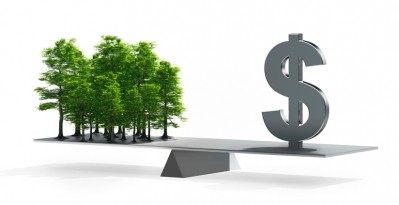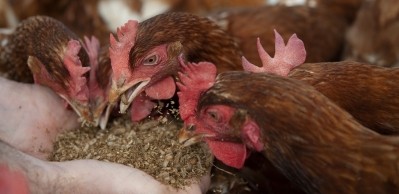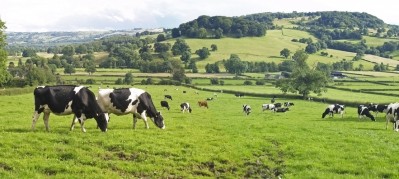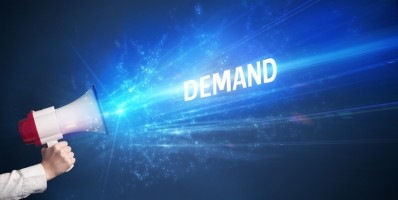Special Edition: Aqua Feed Innovation
Feed makers, retailers react after claims of irresponsible fishmeal and fish oil sourcing
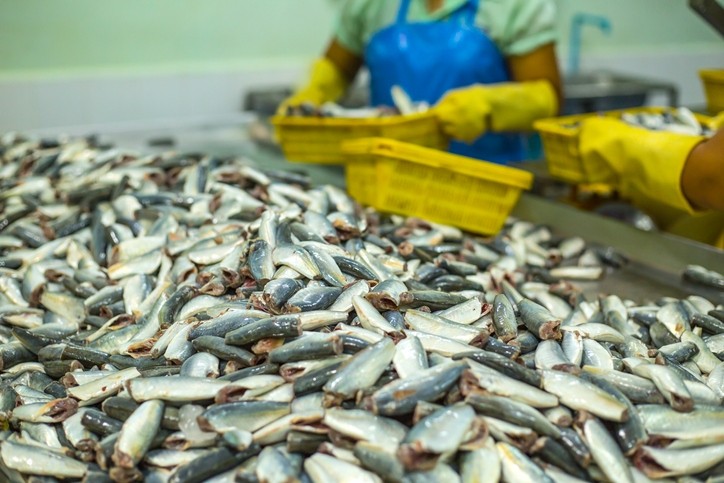
The publication, Fishing for Catastrophe, was published this month by the Changing Markets Foundation.
Based on findings from on-the-ground investigations carried out in India, Vietnam and the Gambia in mid-2019, the authors said their report presents "damning evidence" that the production of fishmeal and fish oil (FMFO) for use in global aquaculture supply chains is precipitating the collapse of fish stocks, compromising food security, and destroying the social and economic fabric of communities living adjacent to historic fishing grounds at a time when the oceans are being pushed to the brink by the impacts of climate change, pollution and overexploitation.
“Aquafeed companies, aquaculture producers, seafood processors and major retailers are complicit by association in the socioeconomic and ecological damage our investigators encountered.”
The report concludes that, given soaring demand from the aquaculture sector, endemic ecological and social problems in FMFO supply chains, and global fish stocks dwindling to historic lows, FMFO from whole wild fish has no place in the future of feed.
Aqua feed producers cite their responsible supply chains
The report alleged that Skretting, part of Nutreco, is linked to irresponsible FMFO production practices.
Reacting, the international fish feed company stressed it only sources raw materials from responsible suppliers that meets its social and environmental standards. The details of species, origin and conservation status of its marine ingredients are published in its annual sustainability report, available on its website, it continued.
Trygve Berg Lea, sustainability manager, Skretting, elaborated somewhat on that statement, telling us:
“We do not source ingredients from fisheries that are illegal, unregulated or unreported (IUU). All Skretting suppliers must sign our supplier code of conduct, which details our social and environmental expectations. Our code of conduct includes a supplement dealing with specific requirements for our marine ingredient suppliers. Our suppliers are regularly audited against the code of conduct to ensure that they can demonstrate compliance against the supplier agreement.”
“As always, we support the exposure of potentially unsustainable practices in our supply chains,” he added.
Indeed, Skretting announced today that it has allocated US$2m to enable the development of alternative aquaculture feed ingredients in 2020.
The company cited data from the Food and Agriculture Organization of the United Nations (FAO) forecasting, that by 2030, there will be a 30m ton hike in aquaculture production, which will require an additional 45m tons of feed raw materials.
"To ensure that the sector can maximise its contribution to sustainably feeding a population that will reach 9.5 billion people by 2050, there is a fundamental need to overcome the reliance on formulating feeds from finite marine ingredients."
Skretting said it is focused on increasing the flexibility of the macro- and micro-ingredient inclusion in its aquaculture feeds. A key aspect of this ambition is development of the circular bioeconomy through the utilisation of proteins generated from the use of waste streams, and by- and co-products.
Danish fish feed maker, BioMar, also moved to clarify some of the statements made in Fishing for Catastrophe, saying the authors of that report misconstrued certain data.
“BioMar is mentioned as a buyer of marine ingredients from West Africa, including the Gambia, Senegal, and Angola. The authors of this report cite fishery transparency information that BioMar provided to the Ocean Disclosure Project as proof that BioMar purchases from the Gambia. In the BioMar Norway Ocean Disclosure Project (ODP) 2018 profile, which reflects sourcing in 2017, the West African Round Sardinella fishery (Sardinella aurita) lists all countries that actively participate in the fishery, including the Gambia. However, just because a country or flag state is listed as a participant in the fishery, does not mean that BioMar has purchased from all countries in a fishery.
“The profile is an interpretation of the high-level sourcing information provided to the ODP at the time of reporting. Where sourcing information was not made available to the level of the fishing vessel flag country, all countries that participate in a fishery were listed by the ODP. There are major local and regional differences in fisheries management for fish stocks, even for the same species.
“While BioMar appreciates any and all efforts to promote sustainable fisheries, the authors of the report have wrongly interpreted this information.”
To set the record straight, BioMar reported it has sourced Round Sardinella from two of the participating countries meeting its strict sourcing policies - Mauritania, through the Fishery Improvement Project (FIP) and Morocco, as part of the EU Sustainable Fisheries Partnership.
“BioMar focuses on the sourcing of sustainable feed ingredients and supports fishery improvements that help achieve that goal. BioMar has provided financial support to the Mauritania FIP to advance that improvement effort along with active participation in the European Sustainable Fishmeal Roundtable and full disclosure of source fisheries via the Ocean Disclosure Project. BioMar also sponsors the annual Sustainability Overview of Fisheries used for Reduction.”
The company said its sourcing and sustainability departments work in close collaboration to ensure responsible sourcing of raw materials, and that it has ambitious KPIs for sourcing certified raw materials with the goal of responsible sourcing and full transparency.
Retailers' response
The authors of Fishing for Catastrophe reported that all the markets they looked at were characterized by a surprising lack of traceability and transparency regarding the origin and supply chain of farmed seafood products; however, they said they were still able to establish that numerous European retailers are sourcing products from aqua feed companies and seafood processors linked to unsustainable FMFO supply chains. These retailers, they claimed, include:
- UK: Sainsbury’s, ALDI, Lidl, Co-op, Tesco, Asda, Iceland, Morrison’s, Waitrose, Marks & Spencer
- France: Auchan, Groupe Casino, Leclerc, Monoprix, Système-U
- Germany: ALDI Nord, ALDI SÜD, REWE, Lidl, EDEKA
- Netherlands: Albert Heijn, Lidl, Plus
- Spain: Mercadona
Weighing in on that, the British Retail Consortium (BRC), a body representing supermarkets in the UK, said:
“Retailers are dedicated to producing and sourcing marine products responsibly, working closely with stakeholders and suppliers to ensure products meet customer expectations on sustainability. Fishmeal and fish oil are important and natural raw materials in aqua feed. They supply various essential nutrients which are important for the health and welfare of farmed fish and are key to making good quality farmed seafood that is beneficial to consumer health.
“The use of wild-caught raw material as marine ingredients in fishmeal is becoming progressively more efficient as novel ingredients are gaining more traction as sustainable additions to the feed basket, which is alleviating pressures on wild fish stocks. This has been supported through utilizing greater amounts of fishery and aquaculture processing by-product and increasing amounts of plant-based ingredients. Moreover, most remaining wild-caught fish used in fishmeal and oil would not typically be fished in significant quantities for human consumption and are sustainably and responsibly fished.”
Lidl Germany sent us a statement [which we translated from the original German, using web based translation services]. In those comments, it outlines how it promotes the responsible use of seafood and fish products and how it is committed to the protection and conservation of the world's ecosystems.
"It is our ambition to make fisheries and aquaculture more sustainable through our purchasing policy.
"We want to fully understand where fish and shellfish come from, as well as the feed used for breeding, and [we] require full traceability throughout the supply chain."
The German retailer said it has been using only Aquaculture Stewardship Council (ASC) or organic-certified raw materials in its own-brand range of fish and shellfish from aquaculture, which extends to fresh and canned fish as well as frozen fish, and has been doing so since May 2018. Fish and/or shrimp farms supplying it must also have at least GLOBAL GAP and/or BAP certification, said the discounter.
"This implies that feed manufacturers who supply GLOBAL GAP certified farms must also be certified and meet strict standards. Among other things, this means that fish for the production of fishmeal and oil must not come from illegal, undocumented and unregulated fisheries and that traceability must be guaranteed."
Lidl added that it welcomes the announcement by ASC that a new feed standard on all ingredients will be released later this year.
Marine ingredients trade stance
The IFFO, the marine ingredients organization, commented on some of the issues raised in the publication, saying it wanted to set out some of the facts.
“The majority of wild-caught fish is responsibly sourced. In addition, raw material for fishmeal and fish oil comes increasingly from byproducts (one third currently) that are left over after fish for food have been processed. Fishmeal and fish oil produced from these resources are used to provide many times more volume of edible fish through aquaculture than are consumed as raw material. The small pelagic fish species that form the bulk of the fisheries dedicated to fishmeal and fish oil production are a highly productive, natural resource with no, or very limited, food markets. It is a good way to use material that would otherwise not be consumed. Their transformation into fishmeal and fish oil supports global protein production: quality feed means quality food," said Petter Martin Johannessen, director general, IFFO.
While the Changing Markets report refers to IFFO and IFFO RS as the same organisation, the IFFO said IFFO RS is an independent body with a third party audit certification program to ensure marine ingredients are responsibly sourced.
In that respect, IFFO RS also issued a statement on the matter.
